
2024 Litigation and Advocacy Leaders' Conference
- Registration Closed
This conference is designed for those who participate in setting the advocacy agenda and leading its implementation, as well as those taking on new leadership roles, in their civil legal aid or civil rights organization. The gathering provides an opportunity for emerging leaders and managing attorneys, in addition to experienced advocacy directors, senior litigators and policy analysts to learn and share cutting-edge advocacy strategies, explore trends affecting low-income people and discuss effective planning and leadership of litigation and advocacy.
Conference goals include sharing information and brainstorming about the following issues:
• Changing client needs, broad trends and their implications for the future
• Cutting-edge advocacy strategies, including new models for collaboration and partnerships
• Aggressive multi-forum advocacy in a changing legal services delivery system
• Effective leadership and management of advocacy and training
This conference will also focus on networking and building communities at the national and regional levels, including reaching out to community-based organizations and civil rights groups. Participants will gain new perspectives, enhanced skills and renewed energy for aggressive representation of low-income clients.
-
Contains 2 Component(s), Includes Credits
The City of St. Louis is awash in vacant property. Almost 6% of housing stock - 7,663 buildings - is vacant. Add 12,524 vacant lots and St. Louis is third nationally in vacant property. Roughly 75% of these vacancies are situated in the region's poorest neighborhoods. Increasingly, the links between vacant properties and deleterious effects for neighboring residents have been documented: vacant properties increase opportunities for crime, make residents feel less safe, and negatively impact the health of neighbors. Conversely, rehabilitation of vacant property presents opportunities for improving economic conditions in low-income neighborhoods through job creation and increasing affordable housing opportunities at a time when St. Louis is facing a critical housing shortage. Missouri law provides place-based nonprofit organizations, like neighborhood associations and community development corporations, a variety of legal tools to address problems associated with vacant nuisance property and to return abandoned parcels to productive use. As part of its strategic plan to improve the lives of low-income Missourians through direct and systemic legal advocacy, Legal Services created Neighborhood Advocacy in 2018 to bring vital legal resources to distressed neighborhoods to stabilize housing and return vacant property to productive use through targeted, place-based pro bono. This CLE will share how a combination of litigation and transactional lawyering, focused at the neighborhood level, can empower neighborhoods to reverse decades-old disinvestment trends and create neighborhoods of economic opportunity that better serve the needs of the low-income residents who live there.
The City of St. Louis is awash in vacant property. Almost 6% of housing stock - 7,663 buildings - is vacant. Add 12,524 vacant lots and St. Louis is third nationally in vacant property. Roughly 75% of these vacancies are situated in the region's poorest neighborhoods. Increasingly, the links between vacant properties and deleterious effects for neighboring residents have been documented: vacant properties increase opportunities for crime, make residents feel less safe, and negatively impact the health of neighbors. Conversely, rehabilitation of vacant property presents opportunities for improving economic conditions in low-income neighborhoods through job creation and increasing affordable housing opportunities at a time when St. Louis is facing a critical housing shortage. Missouri law provides place-based nonprofit organizations, like neighborhood associations and community development corporations, a variety of legal tools to address problems associated with vacant nuisance property and to return abandoned parcels to productive use. As part of its strategic plan to improve the lives of low-income Missourians through direct and systemic legal advocacy, Legal Services created Neighborhood Advocacy in 2018 to bring vital legal resources to distressed neighborhoods to stabilize housing and return vacant property to productive use through targeted, place-based pro bono. This CLE will share how a combination of litigation and transactional lawyering, focused at the neighborhood level, can empower neighborhoods to reverse decades-old disinvestment trends and create neighborhoods of economic opportunity that better serve the needs of the low-income residents who live there.
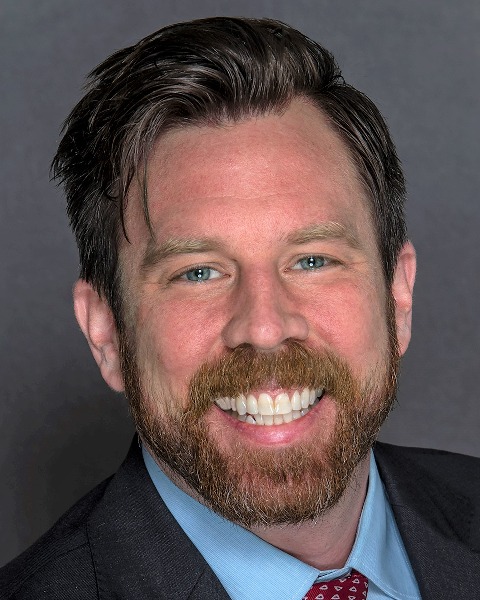
Peter Hoffman, JD/MPA
Managing Attorney
Neighborhood Advocacy
Peter Hoffman manages the Neighborhood Advocacy program for Legal Services of Eastern Missouri. Neighborhood Advocacy provides free legal services to prevent and eliminate blighted, vacant, and abandoned property. Peter began his legal career in Kansas City where he helped to create Legal Aid of Western Missouri's "Adopt-a-Neighborhood" program connecting urban neighborhoods with volunteer lawyers. He served as that project's director until moving home to St. Louis in 2018 to found Neighborhood Advocacy. Peter received his JD/MPA from the University of Missouri-Kansas City with an emphasis in Urban, Land Use, and Environmental Law. Peter’s articles, “Bringing Self-Empowered Revitalization to Distressed Neighborhoods” published in the Journal of Affordable Housing and Community Development Law, and “Legal Services and Pro Bono Lawyers Help Neighborhoods Tackle Vacancy” published in the St. Louis Bar Journal, both spotlight the role pro bono lawyers can play in community revitalization. -
Contains 2 Component(s), Includes Credits
This session is designed to empower legal professionals with the skills and knowledge needed to identify and manage cases that have the potential to effect widespread change. This training covers effective strategies for spotting impactful cases, the nuances of handling complex litigation, and the best practices for navigating the legal and procedural challenges that accompany such cases. Participants will gain valuable insights into building a case that not only succeeds on its own merits but also sets a precedent for future legal standards and reforms.
This session is designed to empower legal professionals with the skills and knowledge needed to identify and manage cases that have the potential to effect widespread change. This training covers effective strategies for spotting impactful cases, the nuances of handling complex litigation, and the best practices for navigating the legal and procedural challenges that accompany such cases. Participants will gain valuable insights into building a case that not only succeeds on its own merits but also sets a precedent for future legal standards and reforms.
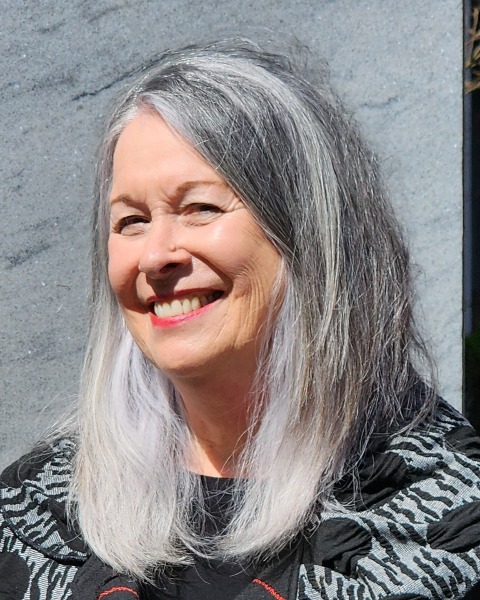
Lisa Krisher, JD
Senior Director of Litigation and Advocacy
Georgia Legal Services Program
Lisa Krisher has worked with Georgia Legal Services Program (GLSP) since 1978, addressing the complex challenges of poverty and civil rights issues. Throughout her career with GLSP including as Director of Litigation and Senior Director of Litigation and Advocacy, Lisa has spearheaded institutional reforms and advocacy strategies that have substantially improved the lives of those in dire circumstances. She has litigated a wide-range of civil cases in Georgia and federal courts inlcuding appeals. She had led GLSP's language access advocacy to improve access for persons who are English language learners to the courts, state and federal agencies. She is a co-founder of GLSP's Race Equity Team which she continues to coordinate.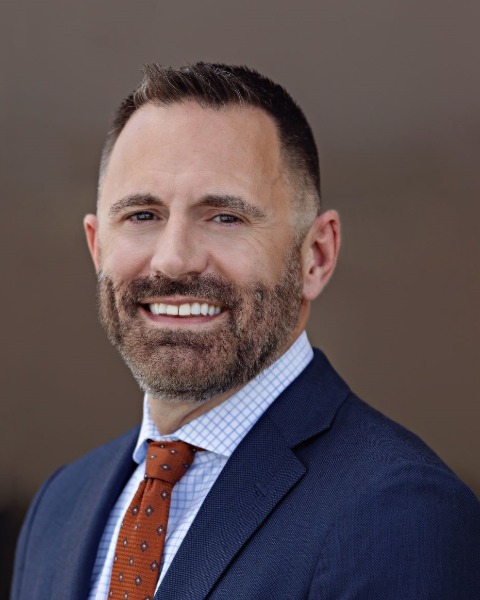
Jeffrey Hearne
Chief Advocacy Officer
Legal Services of Greater Miami, Inc.
Jeffrey M. Hearne is the Chief Advocacy Officer at Legal Services of Greater Miami, Inc., the largest provider of civil legal aid for the low-income communities in Miami-Dade County and the Florida Keys. Jeff oversees the firm's significant litigation and provides a strategic focus to the firm's advocacy in all its practice areas. Jeff has been an attorney at Legal Services for more than twenty years and has focused his career on preventing evictions and enforcing the rights of tenants. Jeff was also the Director of the Tenants’ Rights Clinic at the University of Miami School of Law from 2010 until 2023. He currently serves on the Florida Bar’s Civil Procedure Rules Committee and is a former co-chair of the Florida Housing Umbrella Group, the statewide association of tenant advocates. Jeff has received several honors for his work representing tenants, including the Consumer Protection Lawyer of the Year from the Florida Bar’s Consumer Protection Law Committee (2018), and the Housing Justice Award from the National Housing Law Project (2015). He is a graduate of the University of Texas at Austin (J.D. 2001, B.A., Plan II, 1998).
Michael Forton
Michael Forton has served as Director of Advocacy for Legal Services Alabama (LSA) since 2016. Prior to taking this position, Mr. Forton served as Managing Attorney of the Huntsville Office for six years. Forton has represented clients in a wide range of cases including: housing, consumer, domestic and appellate issues in both state and federal courts. Prior to joining LSA, Forton served as Staff Attorney with Florida Rural Legal Services and clerked with the Alabama Disabilities Advocacy Program (ADAP). Forton received a B.A., with honors, from Michigan State University and a J.D. from The University of Alabama School of Law, where he was in the Bench and Bar Legal Honor Society. Forton previously served on the Board of Directors for the Public Interest Advisory Board at The University of Alabama. Forton won Legal Services Alabama Advocate of the Year in 2008 and the Public Interest Lawyer of the Year from the Alabama State Bar in 2024. -
Contains 2 Component(s), Includes Credits
This session will familiarize the attendee with the issues around license suspension for fees and fines. The session will then look at the national scene for making policy change in this area and how that plays out at the local level. Panelists will discuss states where this change has gone well and others where change was defeated or watered down. Attendees will leave with ideas that will help them take a look at the process in their states and make room for policy change and/or strategies for working within the systems in place now.
This session will familiarize the attendee with the issues around license suspension for fees and fines. The session will then look at the national scene for making policy change in this area and how that plays out at the local level. Panelists will discuss states where this change has gone well and others where change was defeated or watered down. Attendees will leave with ideas that will help them take a look at the process in their states and make room for policy change and/or strategies for working within the systems in place now.

Anna Odegaard, MPP, MA
Senior Advocacy and Campaign Strategist - Midwest
Fines and Fees Justice Center
Anna Odegaard is a Senior Advocacy and Campaigns Strategist for the Fines and Fees Justice Center. She leads FFJC’s work in Minnesota, Michigan, Illinois and Ohio and supports reform throughout the region. Prior to joining FFJC, Anna spent nearly a decade at the Minnesota Asset Building Coalition, leading MABC’s advocacy campaigns for state-level policies that support asset building opportunities, reduce barriers to economic mobility, and advance racial equity. Before joining MABC, she worked as a Policy Analyst for the Service Employees International Union, helping develop equitable and inclusive state policies for implementation of the Affordable Care Act. Earlier in her career, Anna led the Domestic Abuse Response Team in Fridley, Minnesota, supporting domestic abuse survivors on their path to safety. Anna received a Master of Public Policy from the University of Minnesota and a B.A. in Political Science and Rhetoric from Drake University. She lives in Saint Paul, MN with her partner and two children.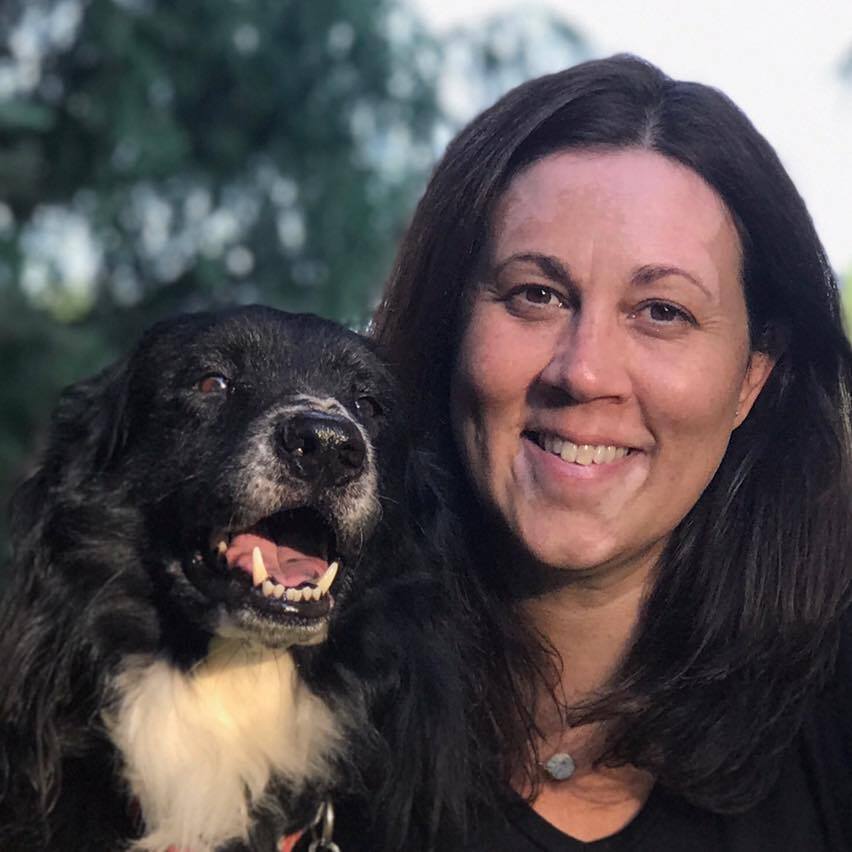
Shannon Lucas
Executive Director
Michigan Advocacy Program
Shannon Lucas is the newly appointed Executive Director of the Michigan Advocacy Program. Prior to that change, she was the Director of Advocacy where she oversaw the programs 6 LSC field offices. In this role, she worked with the offices to plan around staffing and advocacy projects. Prior to this role, Shannon served as the Managing Attorney in the Monroe Office of Legal Service of South Central Michigan. Shannon is a graduate of the University of Michigan and the University of Toledo - College of Law. She has been involved with legal services for over 20 years.
-
Contains 4 Component(s), Includes Credits
Section 1983 is a powerful tool to hold civil rights violators accountable. However, like Liam Neeson, it takes a particular set of skills. This panel will highlight the key considerations for litigators when bringing such a claim, including proper parties, venue, relief, and legal & practical obstacles.
Section 1983 is a powerful tool to hold civil rights violators accountable. However, like Liam Neeson, it takes a particular set of skills. This panel will highlight the key considerations for litigators when bringing such a claim, including proper parties, venue, relief, and legal & practical obstacles.

Somil Trivedi
Somil Trivedi Somil Trivedi is Chief Legal & Advocacy Director at Maryland Legal Aid, where he is currently bringing or brainstorming numerous 1983 actions stemming from individual representations in core legal services areas. He was previously a Senior Staff Attorney at the National ACLU, where he filed such claims in criminal justice and voting rights across the country. -
Contains 1 Component(s)
Many legal services organizations are interested in deepening their commitment to diversity, equity, and inclusion. This conversation will provide perspectives around best practices in this area from within the legal services community, highlight innovative programs and initiatives from the private sector, and discuss how organizations can continue to operationalize these principles after Students for Fair Admissions v. Harvard.
Many legal services organizations are interested in deepening their commitment to diversity, equity, and inclusion. This conversation will provide perspectives around best practices in this area from within the legal services community, highlight innovative programs and initiatives from the private sector, and discuss how organizations can continue to operationalize these principles after Students for Fair Admissions v. Harvard.

Vicky Slade
Victoria Slade is an attorney with Davis Wright Tremaine LLP's employment services group. She has extensive experience guiding employers through tricky personnel issues, including allegations of discrimination and harassment, employee misconduct, disability accommodations, and terminations, and she regularly advises employers on other matters of state and federal employment law. In litigation, Victoria partners with employers to find the best solution, whether through early dispute resolution or taking the case all the way through trial. Victoria also conducts investigations and provides training and advice on issues facing today's employers, such as implicit bias, microaggressions, stereotypes, and LGBTQ issues. Victoria has extensive experience and training in Diversity, Equity, and Inclusion, including an Advanced Diversity and Inclusion Certificate from Cornell University, and she holds the Cornell Certified Diversity Professional credential. Victoria partners with employers to lawfully advance diversity, equity, inclusion, and belonging, and she represents employers in disputes arising out of or challenges related to these programs. Active in the community, Victoria gives her time in pro bono and community service projects. She has worked alongside various local nonprofits, including Legal Counsel for Youth and Children, the Northwest Immigrants Rights Project, Gay City, Planned Parenthood, and Legal Voice.
Jennifer Johnson

Jim Chosy
-
Contains 2 Component(s), Includes Credits
The session will focus on the psychological factors that can impede the effectiveness of legal aid, offering insights into how cognitive biases and decision-making processes affect client interactions and case outcomes. Participants will learn strategies to overcome these barriers, enabling them to provide more impactful legal support to those in need.
The session will focus on the psychological factors that can impede the effectiveness of legal aid, offering insights into how cognitive biases and decision-making processes affect client interactions and case outcomes. Participants will learn strategies to overcome these barriers, enabling them to provide more impactful legal support to those in need.

Stacie Bosley
Stacie Bosley is an economist with a PhD. in Applied Economics from the University of Minnesota. She is the Kahlert Professor of Economics, and has also served as the university's faculty director of assessment. Dr. Bosley's research focuses on the multi-level marketing (MLM) industry as well as consumer protection issues, including earnings representations and pyramid scheme fraud. Her research has been published in the Journal of Public Policy & Marketing, the Journal of Financial Crime, the Journal of Behavioral & Experimental Economics, Economic Inquiry, and the Journal of Consumer Affairs. Her research has also been cited in podcasts (e.g., The Dream), books (e.g., Cultish), and media outlets, including Fortune, NPR's Marketplace, USA Today, CNBC, and the BBC. Dr. Bosley has served as an expert witness for the FTC, SEC and other parties in pyramid scheme cases. Professor Bosley seeks to motivate economics and quantitative analysis through discussion of pressing problems in society and business. She also regularly works with students on collaborative research projects.
Michael Forton
Michael Forton has served as Director of Advocacy for Legal Services Alabama (LSA) since 2016. Prior to taking this position, Mr. Forton served as Managing Attorney of the Huntsville Office for six years. Forton has represented clients in a wide range of cases including: housing, consumer, domestic and appellate issues in both state and federal courts. Prior to joining LSA, Forton served as Staff Attorney with Florida Rural Legal Services and clerked with the Alabama Disabilities Advocacy Program (ADAP). Forton received a B.A., with honors, from Michigan State University and a J.D. from The University of Alabama School of Law, where he was in the Bench and Bar Legal Honor Society. Forton previously served on the Board of Directors for the Public Interest Advisory Board at The University of Alabama. Forton won Legal Services Alabama Advocate of the Year in 2008 and the Public Interest Lawyer of the Year from the Alabama State Bar in 2024. -
Contains 2 Component(s), Includes Credits
Medicare has a robust home health benefit for qualified individuals that includes skilled care as well as aides for personal care activities. But the reality on the ground paints a different picture, particularly for beneficiaries with long-term disabilities. The inability of older, disabled adults to access Medicare-covered home health services affects individuals who are more likely to be members of a racial or ethnic minority group, to have lower incomes, and to be in poorer overall health compared to people without disabilities. This presentation will discuss advocacy efforts to ensure that people with long-term disabilities can access the home health benefits that Medicare promises.
Medicare has a robust home health benefit for qualified individuals that includes skilled care as well as aides for personal care activities. But the reality on the ground paints a different picture, particularly for beneficiaries with long-term disabilities. The inability of older, disabled adults to access Medicare-covered home health services affects individuals who are more likely to be members of a racial or ethnic minority group, to have lower incomes, and to be in poorer overall health compared to people without disabilities. This presentation will discuss advocacy efforts to ensure that people with long-term disabilities can access the home health benefits that Medicare promises.
- Upon completion, participant will be able to understand the barriers facing older adults with limited English proficiency in accessing health care and how the 2024 Final Rule's language access provisions implementating Section 1557 of the Affordable Care Act addresses these barriers.
- Upon completion, participant will be able to represent older clients with diverse needs including: (1) grandparents caring for children/guardianship, (2) consumer practices that disproportionately affect older adults who have limited English proficiency, and (3) probate issues unique to reservations.
- TBD

Carol Wong, JD
Associate Litigation Director
Justice in Aging
Carol Wong is the Associate Litigaiton Director for Justice in Aging. Carol litigates cases with Justice in Aging's partners to remedy systemic inequities that affect older adults across the nation. On behalf of Justice in Aging, she recently led cases that secured due process rights for Medicare beneficiaries nationwide, and restored critical Medicaid benefits to hundreds of thousands of older adults, persons with disabilities, and others who wrongfully lost them during the COVID-19 Public Health Emergency. Carol was drawn to this work because of her immigrant grandfather. He was an individual with limited English proficiency and was fortunate to have family who helped him navigate various government programs. Because many others do not have similar support, Carol’s work advocates for changes that address challenges older adults face in accessing benefits and services. Previously, Carol was a Senior Trial Attorney with the U.S. Department of Justice, Civil Rights Division. While at the Department, Carol completed a detail to the White House Initiative on Asian Americans and Pacific Islanders where she focused on improving opportunities and access to federal resources for underserved Asian American and Pacific Islander communities. Carol received her law degree from the University of Illinois College of Law and is admitted to the District of Columbia Bar.
Barbara Willeto
Tribal Court Staff Attorney
DNA People's Legal Services, Inc.
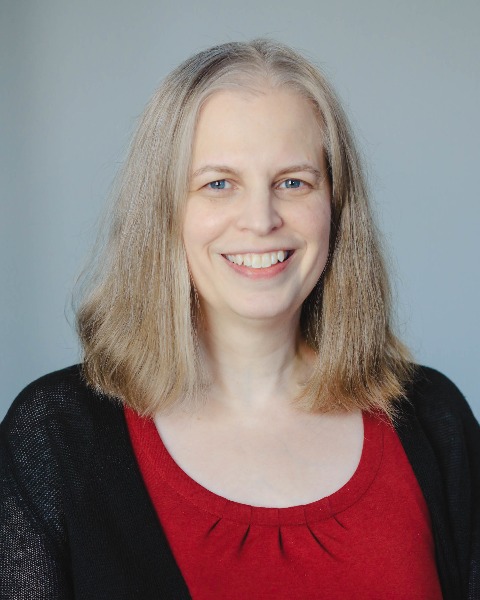
Ali Bers, JD
Litigation Director
Center for Medicare Advocacy
Ali Bers represents older adults and people with disabilities in federal litigation aimed at making systemic improvements to Medicare. She has litigated numerous class actions challenging policies that improperly deny Medicare coverage or that violate beneficiaries’ appeal rights in the Medicare program. Her work includes serving as lead counsel in a case that established appeal rights for a nationwide class of Medicare beneficiaries who were denied coverage of their hospital and nursing home stays. Ms. Bers was also part of the legal team that achieved the nationwide Jimmo v. Sebelius settlement, which clarified that “improvement” is not required for Medicare coverage of skilled care. She has written and co-authored amicus briefs in cases that affect the health care of people who rely on Medicare. Ms. Bers also speaks and writes on Medicare topics as part of the Center for Medicare Advocacy’s educational activities. Before joining the Center, Ms. Bers was a staff attorney at Western Massachusetts Legal Services (now Community Legal Aid). At Legal Services, she assisted low-income clients with public benefits and she represented older adults and disabled individuals as part of the Massachusetts Medicare Advocacy Project. She was a law clerk for the Honorable Robert N. Chatigny of the U.S. District Court in Connecticut. Ms. Bers received her B.A. from Columbia University and her J.D. from Harvard Law School. -
Contains 2 Component(s), Includes Credits
Building good technology to administer public benefits systems is HARD. Most government agencies are not adequately prepared to design and oversee these projects, or to even manage vendors in this space. This session will address some types of "good" technology and processes that government agencies should follow, and will address strategies that involve litigation leverage and more collegial relationship building. We will also discuss one of the newer technologies that has affected almost every system: digital identity verification.
Building good technology to administer public benefits systems is HARD. Most government agencies are not adequately prepared to design and oversee these projects, or to even manage vendors in this space. This session will address some types of "good" technology and processes that government agencies should follow, and will address strategies that involve litigation leverage and more collegial relationship building. We will also discuss one of the newer technologies that has affected almost every system: digital identity verification.

Hannah Quay-de la Vallee
Hannah Quay-de la Vallee is a Senior Technologist at the Center for Democracy & Technology. While she brings her technical expertise to bear across CDT’s projects, she is primarily focused on the Equity in Civic Technology Project, dedicated to ensuring that education agencies and other civic institutions use data and technology responsibly while protecting the privacy and civil rights of individuals. Hannah received her PhD in computer science from Brown University in 2017. For her dissertation, she designed and built tools that help users better manage privacy on their mobile devices.
Waldo Jaquith
Waldo Jaquith is a technologist with extensive experience in the government, non-profit, and for-profit sectors. He’s Government Delivery Manager at U.S. Digital Response and serves as a Senior Government Expert at the U.S. Treasury, in the position of Director of IT Procurement for the Inflation Reduction Act. He was most recently a presidential appointee at the U.S. General Services Administration, serving as Senior Advisor to the Administrator. He’s previously served on the Biden-Harris Transition Team, at the Georgetown University’s Intergovernmental Software Collaborative, and at 18F, in each case developing and promoting best practices for government procurement of major software projects. Previously, Jaquith ran U.S. Open Data, and worked for the White House Office of Science and Technology Policy under President Obama. He’s had fellowships from both the Knight Foundation and the Shuttleworth Foundation. He lives near Charlottesville, Virginia with his wife and children.
Julia Simon-Mishel
Julia is the supervising attorney of the Unemployment Compensation Unit at Philadelphia Legal Assistance (PLA), where she represents low-wage workers in unemployment matters. She has represented more than 800 clients and has an active appellate practice pursuing impact unemployment cases in Pennsylvania courts. Julia has won two cases in the Pennsylvania Supreme Court: Harmon v. UCBR, a statutory construction case that expanded the right to benefits for returning citizens; and Lowman v. UCBR, a groundbreaking case holding that an UberX driver worked in “employment” and was entitled to unemployment benefits. She also works closely with the Pennsylvania Department of Labor and Industry on system improvements and has testified by invitation before the Pennsylvania legislature many times on issues affecting her clients. Julia’s research and advocacy focuses on how technology can improve access to benefits and how to prevent harmful uses of automated decision-making in benefit programs. She was the co-principal investigator and author of the Robert Wood Johnson Foundation funded report “Centering Workers - How to Modernize Unemployment Insurance Technology,” and serves by appointment on Pennsylvania’s Unemployment Compensation Benefit Modernization Advisory Committee. During the COVID-19 pandemic, Julia has spearheaded community outreach and education about unemployment programs in Pennsylvania, working closely with social service organizations, community groups, legal services organizations, and local officials to help tens of thousands of workers access benefits. She is frequently cited in media outlets across the country, including the New York Times, Washington Post, Philadelphia Inquirer, NPR, Wall Street Journal, and Bloomberg News. Recently, Julia launched a statewide unemployment resource and self-help website, www.UCHelp.org. Before joining PLA, Julia clerked for the Honorable Norma L. Shapiro of the Eastern District of Pennsylvania. Julia has been named one of the American Bar Association’s “On the Rise: Top 40 Young Lawyers” and a Super Lawyers “Rising Star” in Pennsylvania. In October 2021, she received the National Legal Aid and Defender Association (NLADA) New Leaders in Advocacy Award. She graduated magna cum laude from the University of Pennsylvania Law School and Brandeis University. -
Contains 2 Component(s), Includes Credits
While racial justice litigation and advocacy has never been an easy undertaking, the work has become increasingly difficult because of last year's U.S. Supreme Court decision finding the use of certain race-conscious admissions policies in college admission decisions violates the Equal Protection Clause of the Fourteenth Amendment. Not only has this decision led states to ban DEI (Diversity, Equity, and Inclusion) initiatives from higher education, but even disparate impact regulations of federal agencies have come under attack by litigation and rule-making petitions filed by Attorney Generals of several "Red" states. This panel will cover some of these recent developments and discuss how they could affect litigation and non-litigation advocacy strategies on behalf of low-income communities of color, as well as ongoing efforts to make legal aid workplaces more equitable and inclusive places to work.
While racial justice litigation and advocacy has never been an easy undertaking, the work has become increasingly difficult because of last year's U.S. Supreme Court decision finding the use of certain race-conscious admissions policies in college admission decisions violates the Equal Protection Clause of the Fourteenth Amendment. Not only has this decision led states to ban DEI (Diversity, Equity, and Inclusion) initiatives from higher education, but even disparate impact regulations of federal agencies have come under attack by litigation and rule-making petitions filed by Attorney Generals of several "Red" states. This panel will cover some of these recent developments and discuss how they could affect litigation and non-litigation advocacy strategies on behalf of low-income communities of color, as well as ongoing efforts to make legal aid workplaces more equitable and inclusive places to work.

Nicholas Espiritu
Deputy Director, Legal
National Immigration Law Center
Nicholas Espíritu, Deputy Director, Legal. Nicholas Espíritu focuses on promoting the rights of low-income immigrants through litigation and administrative advocacy.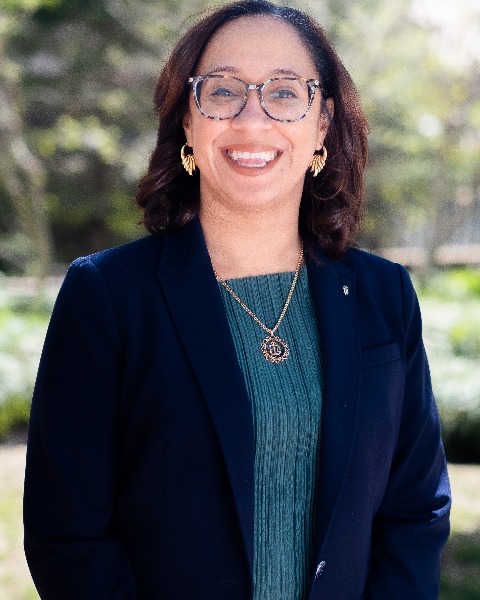
Sophia Hall
Deputy Litigation Director
Lawyers for Civil Rights
Sophia Hall joined Lawyers for Civil Rights in 2016. As an experienced litigator, Sophia handles a broad range of civil rights matters. Sophia actively represents people of color and immigrant women to protect their rights in the workplace and in the community. Most recently, she filed a landmark sexual harassment lawsuit against a prominent national restaurant chain expanding #MeToo to #YoTambien. She also successfully resolved a precedent-setting racial profiling matter creating a blueprint for police departments across the country to implement comprehensive implicit bias and search/seizure training. Sophia has a growing practice focused on dismantling barriers to diversity in public agencies.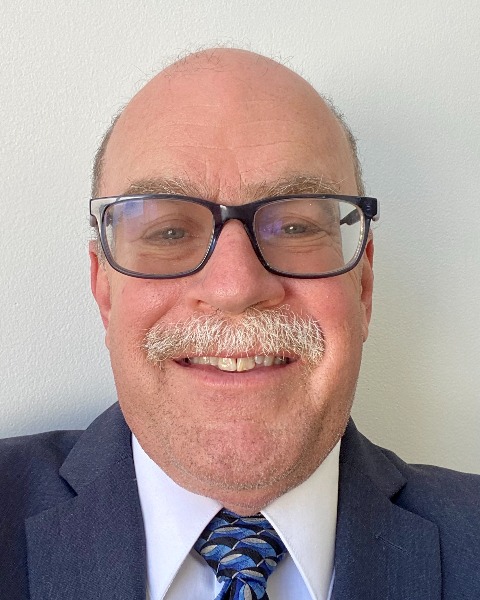
Steven Fischbach, JD
Litigation Director
Virginia Poverty Law Center
Steve Fischbach is the Litigation Director for the Virginia Poverty Law Center, the state support center for all civil Legal Aid programs in Virginia. In that capacity, Steve helps Legal Aid attorneys develop impact litigation cases, particularly in the areas of housing and racial justice. He was tasked with assisting the statewide Legal Aid community develop a coordinated response to the Covid-19 pandemic, including developing an early warning system for eviction cases using court data obtained from the Legal Services Corporation’s Civil Court Data Initiative. Steve is an alumnus of the Shriver Center’s Racial Justice Initiative (RJI) and worked with NLADA to develop racial justice practice standards prior to RJI. Before moving to Virginia in 2018, Steve worked for 30 years at Rhode Island Legal Services, pioneering the practice of Community Lawyering in a legal service setting. Steve is a graduate of Brandeis University and Boston University School of Law. -
Contains 2 Component(s), Includes Credits
"The right to counsel in civil cases is both a matter to be litigated and creates opportunities for additional strategic litigation and advocacy. This panel will discuss the opportunities for and obstacles to those efforts, from both a theoretical and practical lens."
"The right to counsel in civil cases is both a matter to be litigated and creates opportunities for additional strategic litigation and advocacy. This panel will discuss the opportunities for and obstacles to those efforts, from both a theoretical and practical lens."

Somil Trivedi
Somil Trivedi Somil Trivedi is Chief Legal & Advocacy Director at Maryland Legal Aid, where he is currently bringing or brainstorming numerous 1983 actions stemming from individual representations in core legal services areas. He was previously a Senior Staff Attorney at the National ACLU, where he filed such claims in criminal justice and voting rights across the country.
John Pollock, JD
n/a
Northeastern University School of Law
John Pollock is a Staff Attorney for the Public Justice Center who has served since 2009 as the Coordinator of the National Coalition for the Civil Right to Counsel (NCCRC). The NCCRC works in 45 states at the state and local level to establish the right to counsel for low-income individuals in civil cases involving basic human needs such as child custody, housing, safety, mental health, and civil incarceration. He is the recipient of the 2018 Innovations Award from the National Legal Aid and Defender Association (NLADA). Previously, John worked as the Enforcement Director for the Central Alabama Fair Housing Center and as a law fellow / consultant at the Southern Poverty Law Center. He graduated from Northeastern University School of Law, where he was a recipient of a Public Interest Law Scholarship (PILS). He is the author of many law review articles, including Appointment of Counsel for Civil Litigants: A Judicial Path to Ensuring the Fair and Ethical Administration of Justice, Court Review, Vol. 56 Issue 1 (2020).